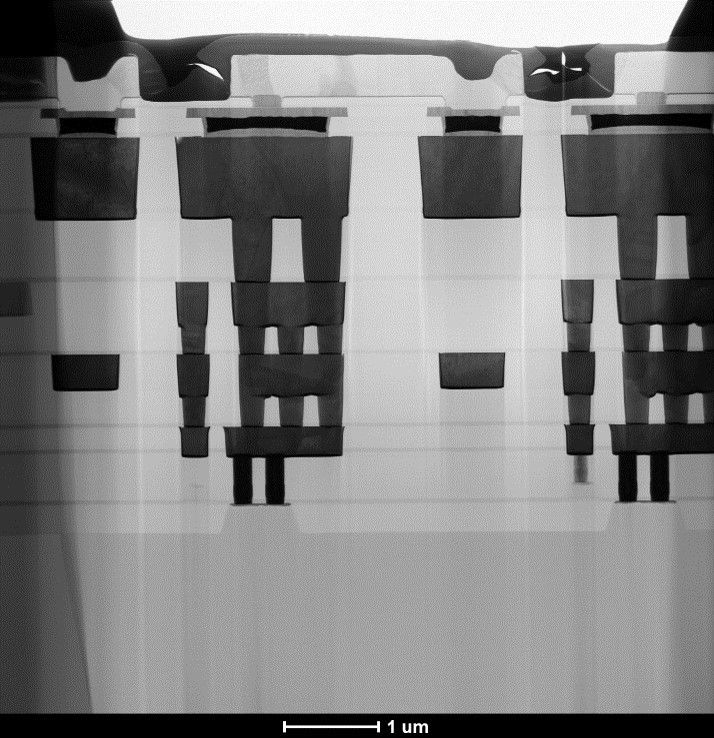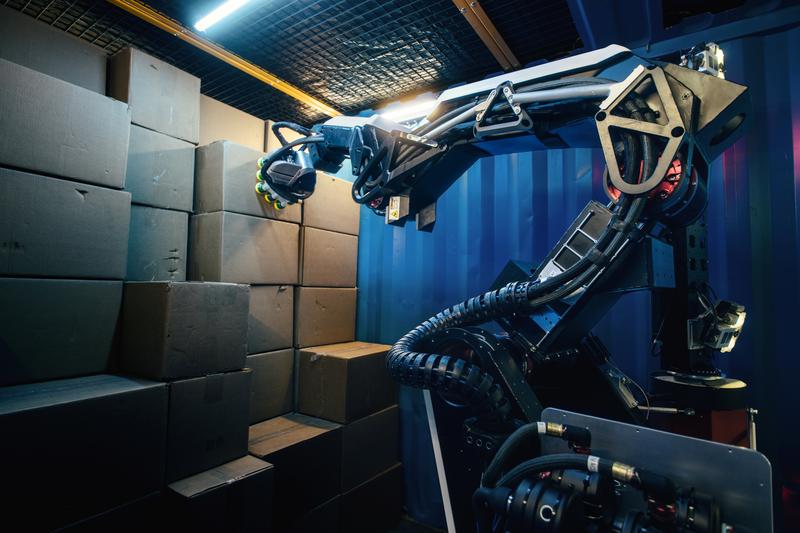Algorithms may be key to effectively using ReRAM devices in edge-learning systems, turning a ReRAM disadvantage to good use.


Ambi Robotics has two flagship products. AmbiSort is a robotic putwall that sorts boxes, polybags, and envelopes from bulk input flow (chutes, totes, and bins) into destination containers (mail sacks, totes). Ambi Robotics claims the system works “over 50% faster than manual labor.” AmbiKit is a robotic system that builds unique kits from any item set. The company said it can be used with subscription boxes, medical kits, gift sets and sample sets for a variety of industries, including cosmetics, food and beverage, consumer goods, medical devices, aerospace and automotive.
The company’s robots are modular, but they do use suction-based gripping. Here’s how AmbiSort works. A depth-sensing camera first looks into a bin of items and analyzes the objects. After determining how to best grasp the item, the robot picks up the item with its suction gripper, holds it up to a barcode scanner, then places the item into a bin. The system then alerts a human operator when a bin is full and ready to be packed.

# **A Portable, Self-Contained Neuroprosthetic Hand with Deep Learning-Based Finger Control**
Nguyen et al.: https://arxiv.org/abs/2103.
#Robotics #ArtificialIntelligence #HumanComputerInteraction


Univ. of Toronto Researcher: “I did not realize quite how bad [the lack of reproducibility and poor quality in research papers] was.”
Many areas of science have been facing a reproducibility crisis over the past two years, and machine learning and AI are no exception. That has been highlighted by recent efforts to identify papers with results that are reproducible and those that are not.
Two new analyses put the spotlight on machine learning in health research, where lack of reproducibility and poor quality is especially alarming. “If a doctor is using machine learning or an artificial intelligence tool to aid in patient care, and that tool does not perform up to the standards reported during the research process, then that could risk harm to the patient, and it could generally lower the quality of care,” says Marzyeh Ghassemi of the University of Toronto.
In a paper describing her team’s analysis of 511 other papers, Ghassemi’s team reported that machine learning papers in healthcare were reproducible far less often than in other machine learning subfields. The group’s findings were published this week in the journal Science Translational Medicine. And in a systematic review published in Nature Machine Intelligence, 85 percent of studies using machine learning to detect COVID-19 in chest scans failed a reproducibility and quality check, and none of the models was near ready for use in clinics, the authors say.

CLEVELAND, Ohio — The Cleveland Clinic and IBM have entered a 10-year partnership that will install a quantum computer — which can handle large amounts of data at lightning speeds — at the Clinic next year to speed up medical innovations.
The Discovery Accelerator, a joint Clinic-IBM center, will feature artificial intelligence, hybrid cloud data storage and quantum computing technologies. A hybrid cloud is a data storage technology that allows for faster storage and analysis of large amounts of data.
The partnership will allow Clinic researchers to use the advanced tech in its new Global Center for Pathogen Research and Human Health for research into genomics, population health, clinical applications, and chemical and drug discovery.

Distribution bots.
Boston Dynamics is best known for its robot dog Spot, a machine designed to work in a range of environments, from offshore oil rigs to deep underground mines. But in recent years, the company has increasingly focused attention on the logistics space, and today is unveiling a new robot with just one application in mind: moving boxes in warehouses.
The robot is called Stretch and looks relatively dull for a Boston Dynamics creation. It’s not modeled after humans or animals, and instead aims to be as practical as possible. It has a square mobile base containing a set of wheels, a “perception mast” with cameras and other sensors, and a huge robotic arm with seven degrees of freedom and a suction pad array on the end that can grab and move boxes up to 23 kilograms (50 lbs) in weight.
What connects Stretch to other Boston Dynamics machines is a focus on mobility. Usually, when automation equipment is installed in warehouses the system is bolted down in one place with a workflow modeled around it. Stretch, by comparison, is designed to slide into any existing workplace where it could be useful loading or unloading goods.


Sorry, we’re having trouble playing this video.
Learn More.
Reuters.
· tSpotnlso3rhoed ·
U.S. robotics company Boston Dynamics unveiled a new robot called ‘Stretch,’ designed to perform one very specific warehouse job: moving boxes https://reut.rs/3… See More.
U.S. robotics company Boston Dynamics on Monday unveiled a new robot called Stretch, designed to perform one very specific warehouse job: moving boxes.
You are constantly adjusting your walking parameters based on the feedback you’re getting from your environment. You walk differently on a soft surface, you prepare yourself before using stairs. Meanwhile robots cannot really do that, especially exoskeletons. These robotic legs could help disabled people walk again on their own, but how could they prepare to stop, climb stairs, make a sharp turn? Scientists believe that in the future exoskeletons are going to be smart thanks to cameras and artificial intelligence.
Currently exoskeletons need to be controlled manually via smartphone applications or joysticks. This is less than ideal, because the disabled person can’t walk as intuitively as an able-bodied person can. And his or her hands are always occupied with these controls. That kind of a cognitive load is extremely tiring and can be dangerous over time. Could you imagine needing to take out your phone every time you want to climb a set of stairs or walk through a strip of sand? Scientists want to borrow a page from a book about autonomous cars and therefore are optimizing AI computer software to process the video feed to accurately recognize stairs, doors and other features of the surrounding environment.
Brokoslaw Laschowski, leader of the ExoNet research project, said: “Our control approach wouldn’t necessarily require human thought. Similar to autonomous cars that drive themselves, we’re designing autonomous exoskeletons that walk for themselves.”